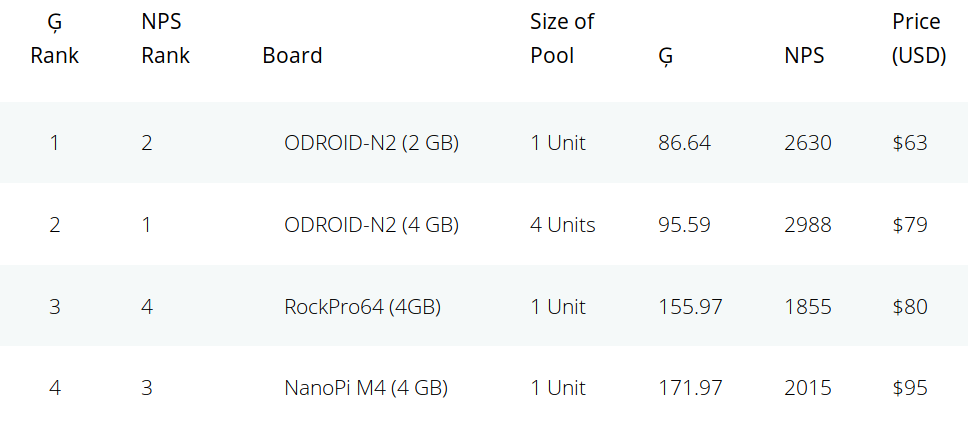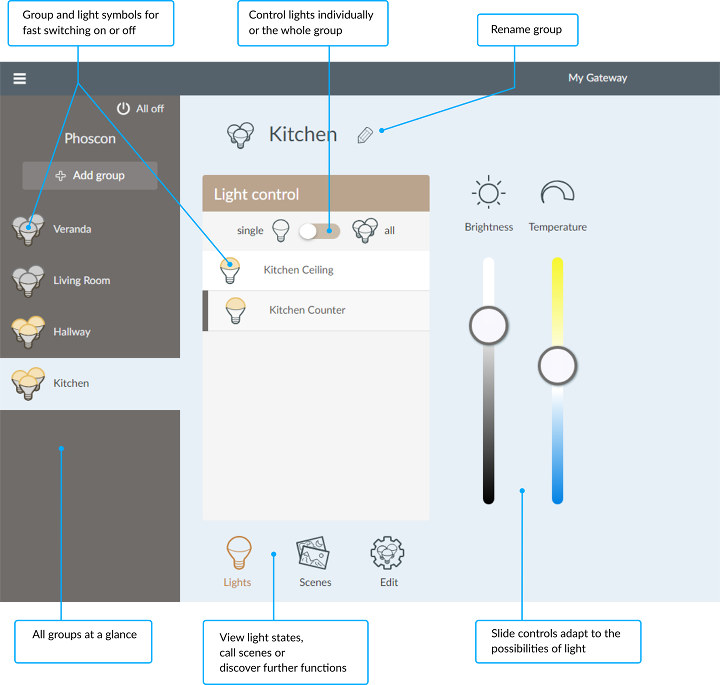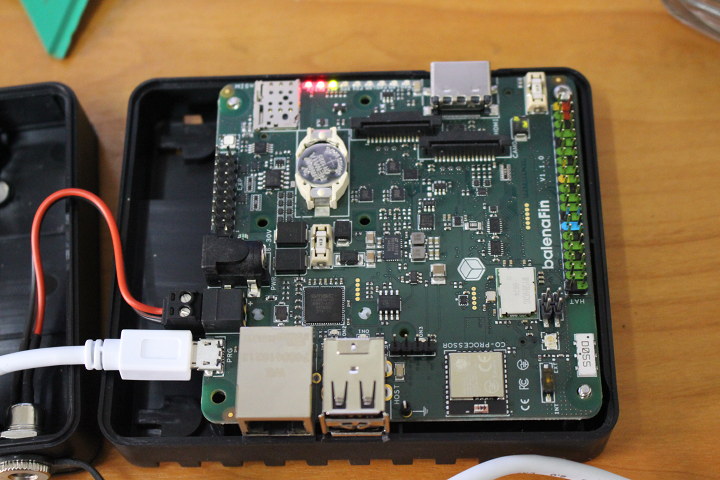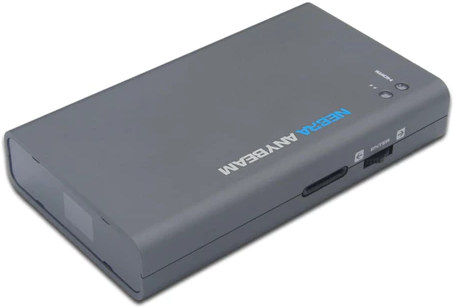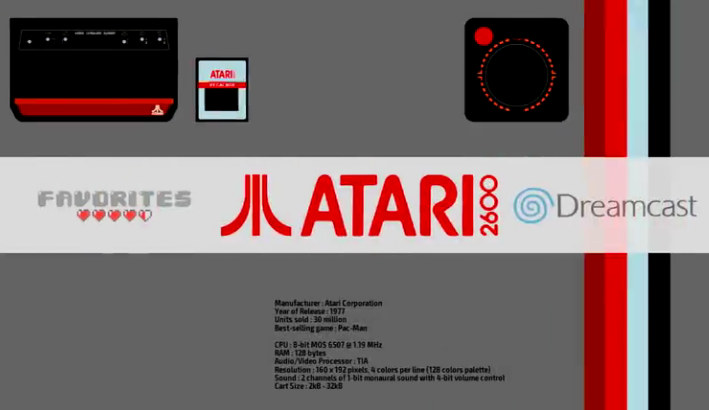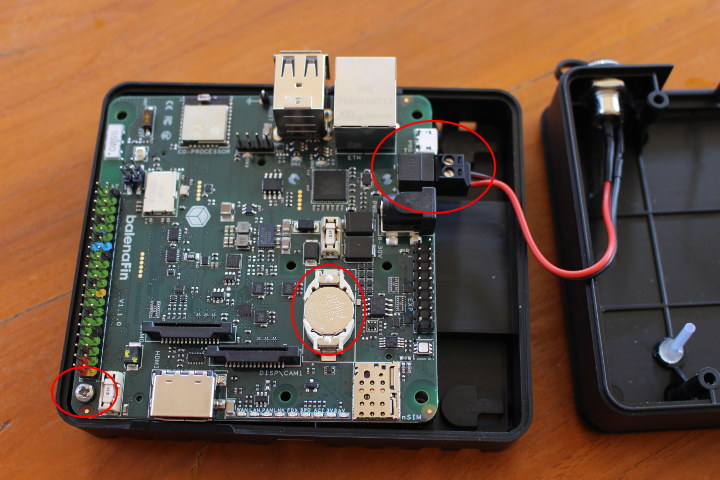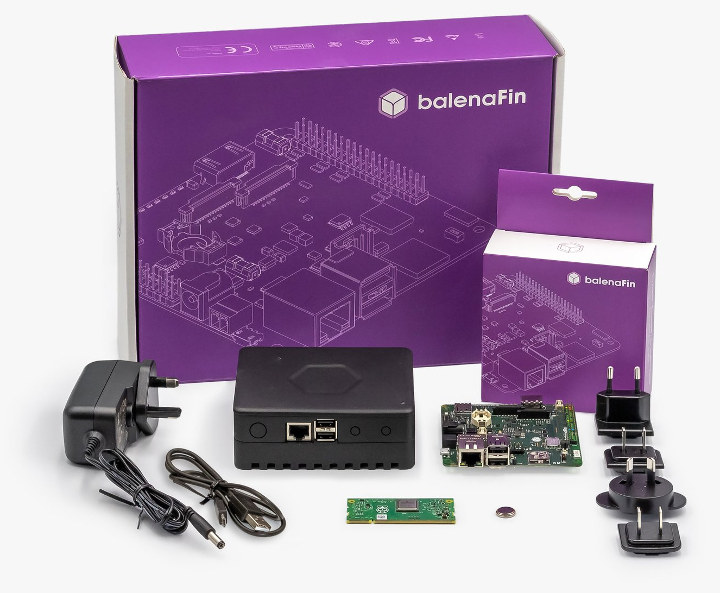[Update May 7, 2019: Giggle Score has been updated to use 7-zip to benchmark the boards instead of sysbench, and the “best value” rankings are now quite different] People like to compare single board computers, and usually want to have a simple answer as to which is better than the others. But in practice it’s impossible, because the beauty of SBCs is that they are so versatile and can be used in a wide variety of project, and that means in some cases the “best board” may be completely useless to you since it lacks a critical feature and interface for YOUR project be it H.265 video encoding or a MIPI DSI display interface. Still, it’s still always fun to look at benchmark scores and trying to compare SBCs, and for projects that mostly require CPU processing power it may also be useful. Robbie Ferguson has been developing and maintaining […]
ConBee II ZigBee USB Gateway Dongle and Phoscon Gateway
Dresden-Elektronik has released a new ZigBee USB dongle/stick called ConBee II (a.k.a. ConBee 2) as a direct replacement the first-generation version, as well as the new Phoscon Gateway Raspberry Pi based Zigbee Hub. Beside new Zigbee hardware, the company has also released a new version of deCONZ graphical user interface used to set up and control any ZigBee network without any programming, as well as a new corresponding “Phoscon App” mobile app for home automation control. ConBee II Zigbee USB dongle The new “ConBee II” ZigBee USB dongle/stick features improved signal amplifier with longer radio range, and is based on a 32-bit Arm Cortex-M0 microcontroller (Microchip ATSAMR21E18A) instead of an 8-bit AVR based MCU. Key features: Connectivity – 2.4 GHz Zigbee USB Gateway Compatibility Philips Hue, IKEA Trådfri, OSRAM Lightify, XIAOMI Aqara and many other Zigbee items Zigbee Home Automation, Zigbee Light Link, Zigbee 3.0 Dimensions – 60 x 18 […]
Getting Started with balenaFin Developer Kit, balenaOS and balenaCloud
balena Fin is a carrier board for Raspberry Pi Compute Module 3/3+ designed specifically for industrial applications leveraging fleet management services provided by Balena. I received balenaFin developer kit last month, and in the first part of the reviewed shows how to assemble the kit. I’m now had time to spend more time with the kit, as well as BalenaOS Linux based operating system optimized for running Docker containers on embedded devices, and balenaCloud services to manage a fleet of devices from a web dashboard. I’ve mostly followed the instructions in the getting started guides here and there, and will document what I had to do to prepare the image, flash it to the board, and load a sample docker application locally, and through balenaCloud. Downloading and Configuring BalenaOS for balena Fin You’ll find BalenaOS in the download page. While we are using hardware based on a Raspberry Pi Compute […]
Makers Friendly Nebra AnyBeam Laser Projector Fits into your Pocket (Crowdfunding)
Nebra Anybeam is a laser pico projector small enough to fit into your pocket. The fanless projector can be powered by a power bank or from the USB port of a computer, and you can play content from your smartphone, laptop or tablet. Beside a consumer devices, the company – Pi Supply – also offers options for makers and tinkerers with a development kit, as well as Raspberry Pi HAT to add the laser projector on top of the popular SBC, as well as a round model powered by Raspberry Pi W Zero board. Nebra Anybeam Projector Nebra AnyBeam key features specifications: Projector Resolution – 720p @ 60 fps Contrast – 80,000:1 Aspect Ratio – 16:9 Brightness – 30 ANSI equivalent to 150 ANSI lumens in a standard DLP projector Video Input – HDMI 1.4 female port Audio – 3.5mm audio jack, 1W speaker Misc – 1/4-20 UNC tripod mount, […]
Batocera.Linux OS Combines Kodi & Retro Gaming for Raspberry Pi & ODROID Boards
There are already several ways to run retro games on development boards, with for example RetroPie, and derivatives like RetrOrangePi, Lakka and Recalbox. Batocera.Linux is another option that I had never heard about so far, and works on PCs, as well as Raspberry Pi and ODROID boards, with ODROID-N2 support having been added very recently. batocera.linux operating system can easily be run from a USB flash drive on your computer without altering your existing OS, while it will boot from a standard microSD card on Raspberry Pi and ODROID boards. Beside retro-gaming support, the OS also includes Kodi media center for playing videos, or listening to music. You may even play games in it since retro-gaming support was added in Kodi 18. The partial compatibility table above shows all platforms have a different level of support, and for Intel hardware support more emulators than Arm based boards. The Orange arrow […]
FOSSASIA 2019 Schedule – March 14-17
As its name implies, FOSSASIA is a Free and Open Source Software event taking place every year in Asia, more specifically in Singapore. I first discovered it last year, and published a virtual FOSSASIA 2018 schedule last year to give an idea about the subjects discussed at the event. It turns out FOSSASIA 2019 is coming really soon, as in tomorrow, so I’m a bit late, but I’ll still had a look at the schedule and made my own for the 4-day event. Thursday – March 14, 2019 10:05 – 10:25 – For Your Eyes Only: Betrusted & the Case for Trusted I/O by Bunnie Huang, CTO Chibitronics Security vulnerabilities are almost a fact of life. This is why system vendors are increasingly relying on physically separate chips to handle sensitive data. Unfortunately, private keys are not the same as your private matters. Exploits on your local device still have […]
balenaFin Developer Kit Review – Part 1: Unboxing and Assembly Instructions
Balena launched balenaFin 1.1 at the end of last month. The board is a professional carrier board for Raspberry Pi Compute Module 3 / 3+ Lite that includes support for variable voltage power input, optional PoE, industrial eMMC flash storage, a real-time Arm Cortex-M4 core via Artik-020 module, and more. Somehow a balenaFin 1.1 developer kit ended up in my home, and I’ll play with it in several weeks, but in the first part of the review, I’ll just check out the content of the package, and show how to assemble the kit. BalenaFin 1.1 Developer Kit Unboxing The local courier brought a largish balena Fin package. which contained a smaller balenaFin package, and the actual developer kit. Everything is nicely packaged in the box with the part related to power supply in a white box, a small opening for smaller accessories and Raspberry Pi Compute Module 3, as well […]
balenaFin Raspberry Pi CM3+/Lite Developer Kit Launched for $179 and Up
Balena.io – previously known as resin.io – first unveiled Resin.io Project Fin in March 2018. The carrier board for Raspberry Pi CM3L was designed with the aim of easing the management of fleets of connected devices thanks to ResinOS operating systems and the ability to deploy apps packaged in containers through their balenaCloud service. The project had been renamed to balenaFin a little while ago, and the company has now announced availability of balenaFin 1.1 developer kit with various improvements including support for PoE, dual camera, and Raspberry Pi CM3+/Lite module. balenaFin v1.1 carrier board specifications with improvements highlighted in bold: Supported SoM Raspberry Pi Compute Module 3 Lite with Broadcom BCM2837 quad-core ARM Cortex A53 processor at 1.2GHz, 1GB RAM Raspberry Pi Compute Module 3+/Lite with Broadcom BCM2837B0 quad-core ARM Cortex A53 processor at 1.2GHz, 1GB RAM Storage – 8, 16, 32, or 64 GB industrial grade eMMC 5.1 […]


